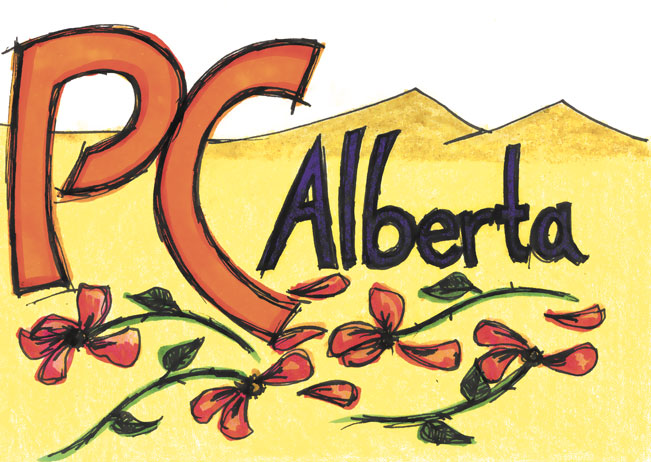
Democracy weakens with loss of Wildrose
By Alana Augart, January 15 2015 —
On Dec. 17, nine Wildrose Party MLAs crossed the floor of Alberta’s legislature and joined the ruling Progressive Conservatives. Among them was former Wildrose Party leader Danielle Smith.
Many Albertans are dismayed at the loss of one of the most effective official oppositions Alberta has seen in the Tories 43-year reign — the longest of any provincial political party in Canada
With the PCs again controlling over 80 per cent of legislature, we’ve already seen damage done to post-secondary students. Twenty-five of 26 proposals for market modifiers — faculty specific tuition increases for degrees with a perceived higher earning potential — from Alberta’s post-secondary institutions were approved on Dec. 22, only five days after the decimation of the Wildrose Party.
The government would have rubber-stamped the market modifier proposals regardless of opposition from any political party. But the floor crossings from the Wildrose party ensured that there was another news item for the headlines while the government continues to gouge students.
When the province first opened up submissions for market modifiers, Smith claimed that she wanted a reliable funding model for post-secondary before increasing the financial burden for students. Her plans was likely a ploy to get elected, but it was the most powerful voice against market modifiers in the legislative assembly.
The fiscally-conservative Wildrose might have sacrificed their more grandiose policy promises in the name of balancing the books if elected. The PCs did the same before them.
The Wildrose was hardly a student-focused party, despite their policy on market modifiers. They shifted towards social conservatism in November by preventing passage of an explicit anti-discrimination bill that affirmed civil rights for everyone regardless of race, religion or sexual orientation.
This political move further limited Wildrose support to rural areas. But the existence of an opposition party over a handful of seats provided hope for more rigorous public debate.
The best thing the Wildrose Party did for Albertan democracy was scare the PCs. When politicians feel vulnerable, they’re more likely to engage with voters.
Ongoing reliance on oil royalties means the PCs have been forced to scramble with the falling price of oil, going back on promised schools and hinting at further cuts to social programs.
The choice of the PCs to keep all of Alberta’s economic eggs in one basket — the oil industry — has left our province at the mercy of one fluctuating commodity. Premier Jim Prentice recently stated that Alberta had gone from an expected $1.5 billion surplus to a $500 million deficit as oil prices plummeted this year. If the price of oil remains below $50 a barrel, Alberta may find a $6.3 billion hole in provincial revenue next year, one that will leave the province making tough, unpopular cuts to healthcare, schooling and infrastructure.
Would a strong Wildrose Party have prevented any of this? Certainly not. But we might have seen debate instead of accepting the bumbling tough-love of the PCs and their cuts to social services.
Few would claim that Albertan students would have fared better under the reign of the Wildrose, but the existence of a strong political opposition to the long-reigning PCs meant greater criticism of market modifiers and tuition hikes. The constant fighting between the PCs and the Wildrose made Albertans pay more attention to provincial politics than we have in years.
The Wildrose floor-crossing meant an end to effective criticism of government decisions like market modifiers by a party with some public support. The Liberals and NDP can talk up student concerns all they like, but the Wildrose party was the first time that people were listening. With cuts looming in the wake of our oil troubles, students should prepare for more cuts to post-secondary funding.
There’s a provincial election in 2016. We’ve already seen what 43 years of PC rule and little opposition has brought — massive budget cuts and unjust market modifiers. If we want an opposition party in this province, we have to vote for one. I suggest we start by getting over our fear of the word liberal.
